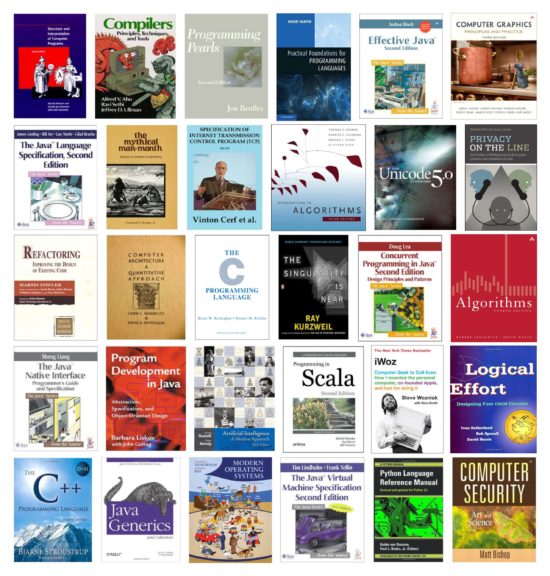Juelsgaard Clinic Asks Federal Circuit to Broadly Apply Fair Use Doctrine to Software APIs
The Juelsgaard Intellectual Property and Innovation Clinic filed an amicus curiae brief this week in the latest episode of the long-running Oracle v. Google copyright litigation. Clinic students Daniel Chao ’18 and Robert Paris ’18, representing 76 leading computer scientists, engineers and professors, urged the Federal Circuit Court of Appeals to affirm the lower court’s finding—that Google’s “reimplementation” of Oracle’s Java Application Programming Interfaces (APIs) in its Android operating system is protected under copyright law’s fair use doctrine.
The Clinic’s amici, like the entire computer industry, rely on unrestricted API reimplementations. Reversing the jury verdict of fair use would dangerously undermine these settled expectations that are essential for furthering creativity and vigorous innovation in the software and computer industry.
The 76 signatories to the brief represent a remarkable group of pioneering and influential figures in the computer and software fields. They include eight Association for Computing Machinery (ACM) Turing Award winners—the industry’s equivalent of a Nobel Prize—and numerous ACM, Institute of Electrical and Electronics Engineers (IEEE), and American Academy of Arts and Sciences fellows, National Academy of Sciences and National Academy of Engineering members, and professors at many of the world’s leading universities. Amici include the architects of iconic computers from the mainframe, minicomputer, and microcomputer eras; numerous programming languages (AppleScript, AWK, C, C++, Go, Haskell, JavaScript, Python, Scala, Scheme, Standard ML, and Smalltalk); and operating systems such as MS-DOS, Unix, and Linux. They are responsible for key advances in the field, such as computer graphics, cloud computing, public key cryptography, object-oriented programming, virtual reality, and the Internet itself. (View extended bio’s of the amici here.)
The Oracle v. Google case traces its origins to the 1990s, when Sun Microsystems developed the Java platform, which included the Java programming language and a set of APIs. The Java APIs enable programmers to use vast “libraries” of pre-written code, otherwise known as implementing code. APIs, which are distinct from the implementing code, are specifications of a set of functionalities. A fundamental concept of APIs is that they can have more than one implementation.
In 2008, Google released Android, a software platform for mobile devices. The Android platform used the free-to-use Java programming language and reimplemented (i.e. independently wrote its own implementation of) a subset of the Java APIs. In 2010, Oracle acquired Sun Microsystems and filed a lawsuit against Google, claiming, among other things, copyright infringement for reimplementing the Java APIs. In 2012, Judge William Alsup of the Northern District of California ruled that the Java APIs were not copyrightable because they comprise a “system or method of operation” under § 102(b) of the Copyright Act. On appeal, however, the Federal Circuit reversed the lower court in a widely-criticized decision, holding that Java APIs are copyrightable. Still, this left open the question of fair use—an exception to copyright liability—to be decided in a second trial. In 2016, the jury in that trial found that Google’s reuse of the APIs was protected under fair use. Again, Oracle appealed.
The Clinic’s amicus brief urges the court to affirm the lower court’s decision. It highlights the history of API reimplementation in the software industry, and how open API reimplementation—a well-settled industry practice—was essential to the development of many influential computer technologies, including the foundations of the modern PC. The brief further outlines the benefits of interoperability (i.e. compatibility) that such reimplementations enable, and the detrimental effects to the software industry of fragmentation and vendor lock-in that could otherwise result.
Turning to the legal arguments in favor of fair use, the brief argues that the court should perform the standard fair use analysis, which takes into account “the nature of the copyrighted work,” with the functional nature of APIs in mind. Fair use in the software context warrants special considerations because of the danger of overprotecting functional, rather than creative, aspects of works.
Finally, the brief makes the case that Android is transformative under the first fair use factor, “the purpose and character of the use,” because it selectively reimplemented Java APIs and successfully brought them into the smartphone and tablet context. Additionally, the purpose of Android’s reimplementation is to achieve interoperability, which allows programmers to adapt existing software and knowledge to work across platforms and in new contexts.
Joshua Bloch, a professor of computer science at Carnegie Mellon University and a former chief Java architect, was instrumental in contributing technical expertise, providing feedback, and enlisting other signatories to the brief. To Bloch, the importance of the brief is clear: “I’ve devoted my career to the design and implementation of APIs. We’ve always had the freedom to reimplement, and the field has flourished under this arrangement. It will suffer tremendously if we lose this freedom.”
The expert amici represented by Daniel and Rob are truly a who’s who of the computer and software industries. They are authors of numerous path-breaking books about computer science, software, programming, the Internet and much more, a handful of which are shown below:

